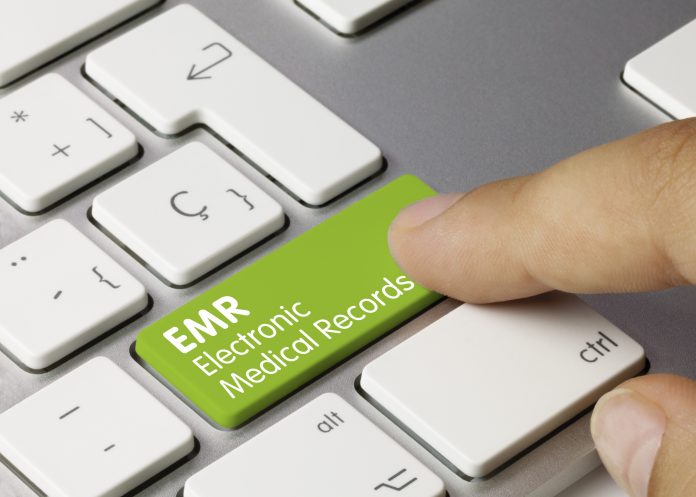Chris Norton, Managing Director, InterSystems UK & Ireland, argues that a paper-light, data-driven, and energy-efficient approach plays a key role in delivering sustainability while aligning with the NHS Long Term Plan to take a digital approach
In October last year, the NHS became the world’s first national health system to commit to becoming ‘carbon net zero’ by 2040. As the UK’s largest employer, and responsible for 4% of the nation’s carbon emissions, the NHS holds a unique responsibility to deliver on these targets and set replicable standards across its healthcare ecosystem. And whilst the pledge is far from the only commitment made by the NHS to drive the care transformation over the coming years, it offers a crucial opportunity to present the solutions needed to achieve a green recovery from COVID-19 and strengthen its long-term digital-first strategy.
Care transformation is at the heart of the NHS’ 2019 Long Term Plan, and any meaningful efforts to achieve it should go hand in hand with sustainability. It should come as no surprise that going paper-light plays a key role in delivering on this goal and can support healthcare’s digital transformation efforts in tandem. With the NHS successfully ending its use of wasteful and outdated fax machines as recently as April 2020 and now required to invest in new technology, there has never been a stronger case to roll out electronic patient records (EPRs) across the organisation.
Electronic patient records
EPR systems allow for all relevant patient information to be made available electronically across care settings and at any time. Providing care providers with a single source of truth for each patient – including the clinical, administrative, and financial information required to deliver quality care – EPRs are helping care providers across the country make better-informed decisions and understand what’s needed to improve the cost and quality of their care. On the surface, paper light solutions like this can seem like a drop in the ocean against the global environmental challenge, but if rolled out and standardised across healthcare ecosystems, they have the potential to disrupt traditional ways of working and bring about a radical change in the fight against environmental breakdown.
The benefits of switching to electronic records are boundless, and more and more Trusts are taking an incremental approach can see just how transformational full-scale paper-free can be. At InterSystems, we’ve been fortunate to work with a range of NHS digital leaders to implement systems that accelerate the switch from paper-based to electronic patient records. Supporting North Tees and Hartlepool Hospitals NHS Foundation Trust to roll out electronic observations, we’ve helped cut their annual carbon footprint by over four tonnes. E-obs are just one element of their paper light journey and supported by a unified health information system, the Trust hopes to go completely paper-free by 2024.
Beyond environmental targets, a paper light, digital-first approach to healthcare also ensures Trusts are better protected against the pervasive threat of cybercrime and enables them to better manage their resource outputs whilst freeing up time spent on administrative tasks that are vulnerable to human error.
However, going paper-free is only a small part of the much larger transformation needed to create a more sustainable NHS. The NHS response during the pandemic saw a rapid increase in delivering care in new ways, from remote consultations to delivering more care in the community. We’ve worked with NHS Trusts that are inviting patients for specialist consultations from remote communities and locations that would take normally many hours of travel. But with the ability to see clinical notes in the community and to deliver telehealth consultations with accurate information at the clinician’s fingertips, it has been possible to slash patients’ carbon footprints while simultaneously bolstering patient safety.
But there is another element. As health data grows exponentially, organisations like ours have a responsibility to innovate sustainably. We take that responsibility for ourselves, and the customers we serve very seriously, and we are constantly looking for improvements. We have recently implemented a new approach to data storage that not only uses hardware that is more energy-efficient and requires less cooling but also reduces the amount of data to be stored through the use of advanced compression and de-duplication techniques. Our recent upgrades mean that we are using 78% less energy and 34% less space in our data centres, while significantly increasing performance and delivering clients with a better level of service. In turn, we’re proud to be supporting the NHS in its mission to be more sustainable for future generations.
Overall, any efforts to drive healthcare’s paper light approach will have a positive impact on our planet. And contrary to popular belief, these efforts go far beyond making the long-awaited switch from fax to email, but rather calls on individuals working across all disciplines and across various care settings to champion environmentally responsible practices across their day-to-day working practices. The potential these solutions have to support the NHS in reaching its net zero carbon targets by 2040 should not be overlooked and, with the 2021 UN Climate Change Conference fast approaching this year, many other organisations will be looking for examples to emulate.
What better opportunity to support and empower our NHS in pioneering a green and sustainable recovery?











